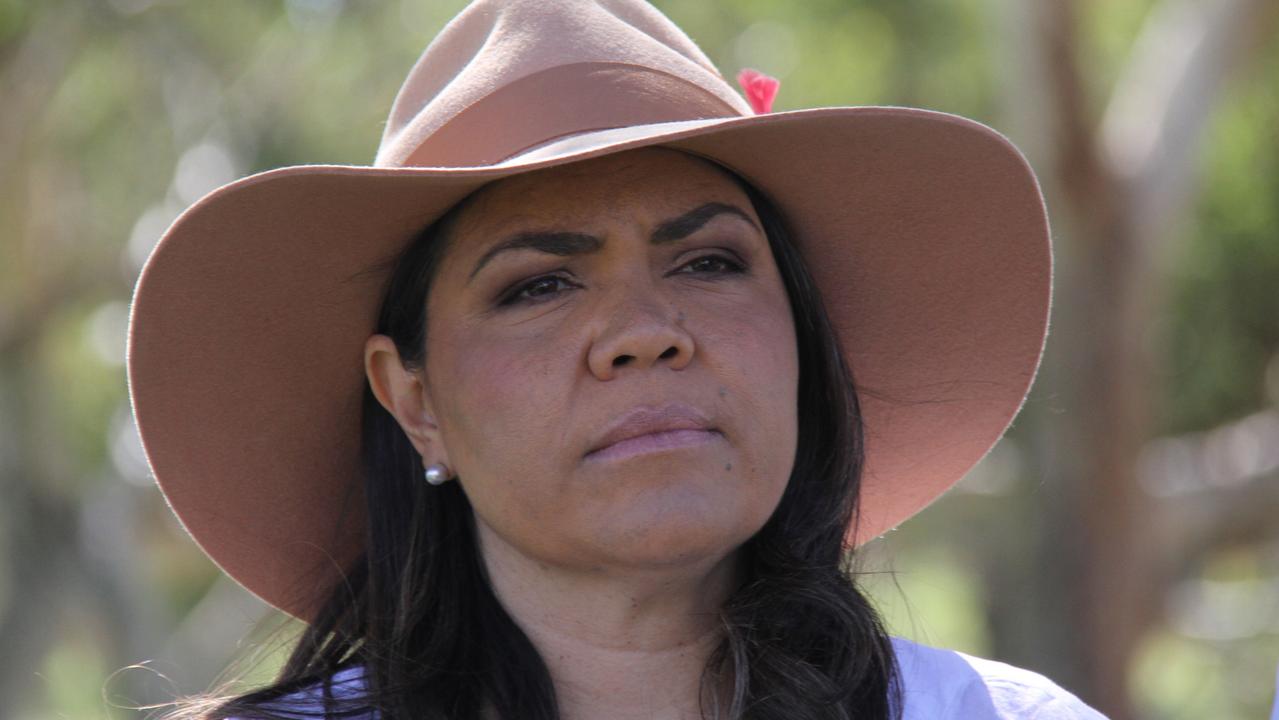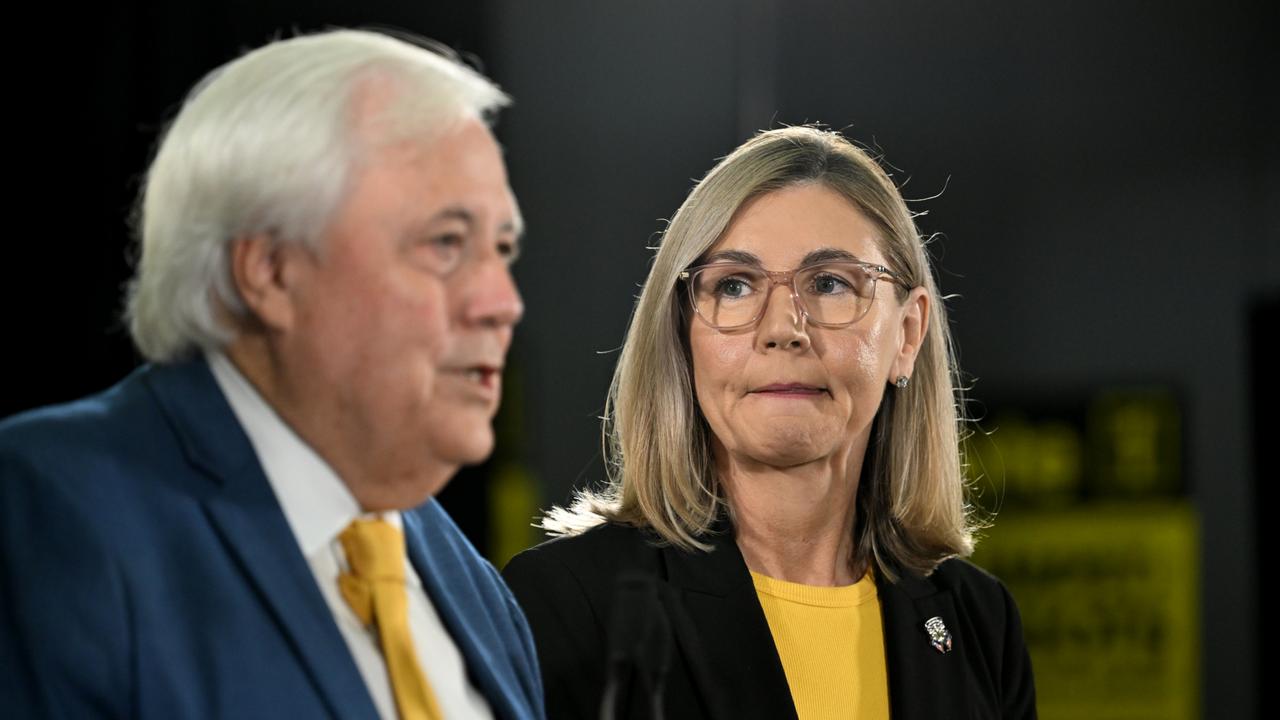Facial data recognition ‘harvesting’ by corporates and Australian governments dangerous: Clarissa Bye
It’s being introduced on the grounds of security and safety, but the Orwellian push to record our unique facial “signature” by surveillance cameras deserves a public debate, argues Clarissa Bye.
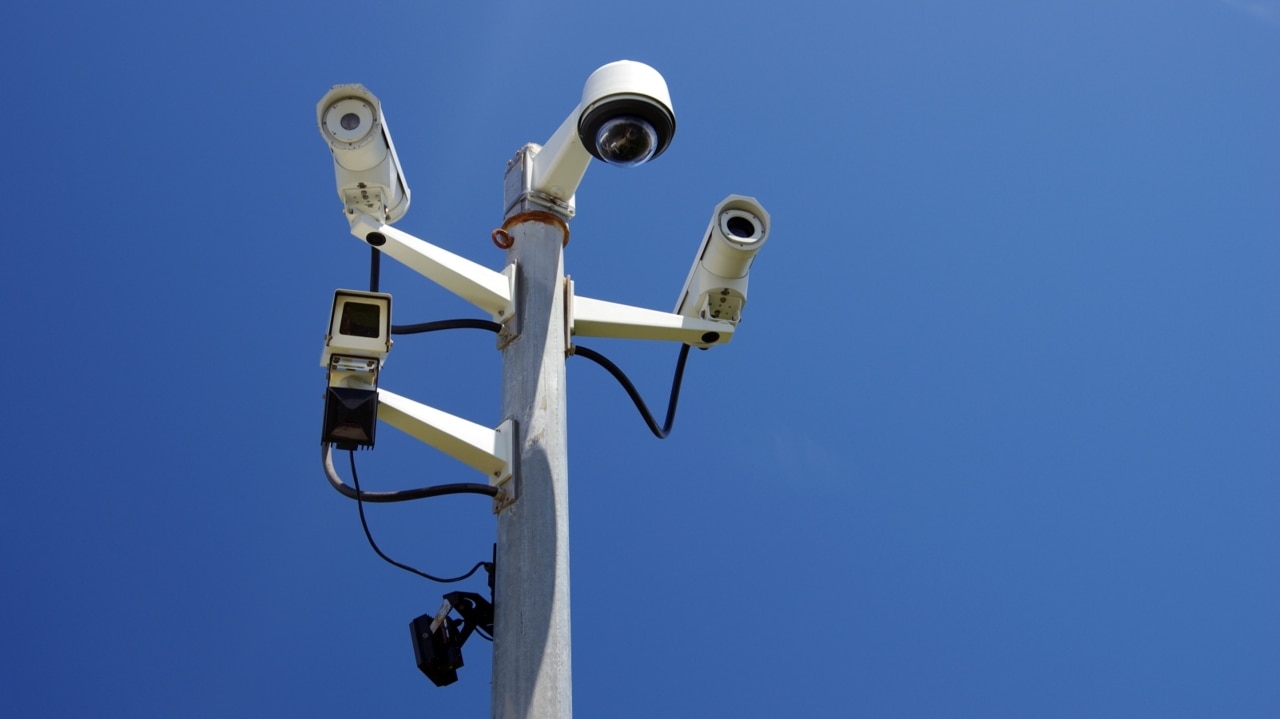
Opinion
Don't miss out on the headlines from Opinion. Followed categories will be added to My News.
One of my daughters, who lives in an inner-city terrace at Newtown, recently had new neighbours put up a CCTV camera on the corner of their terrace.
It looked into her bathroom.
She texted me in a panic. “It looks like the camera inside the black globe is facing their backyard but I can’t go in the toilet or shower knowing the camera could turn — and I can’t tell if it does that from my bathroom.”
So that afternoon she and her boyfriend found an old street sign and nailed it to their wooden paling fence to block it.
But she lay awake at night, creeped out by the whole thing.
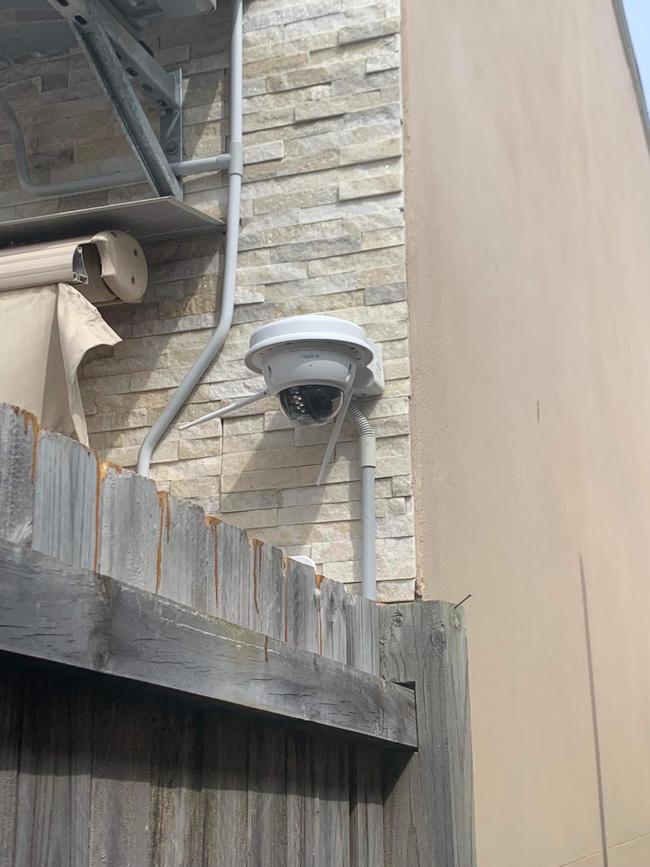
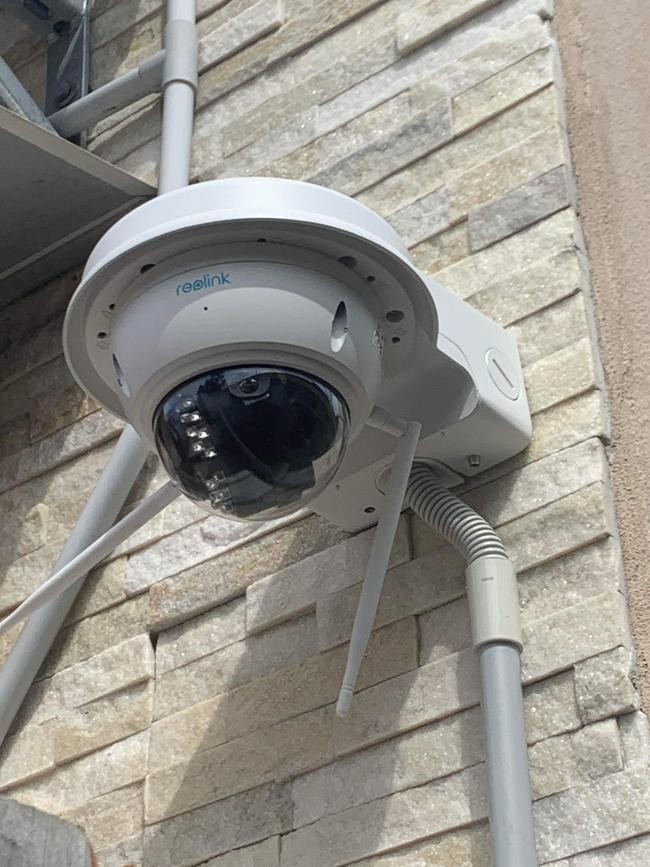
When she researched the legality of it, the advice was ambiguous: there was no clear-cut law saying it was illegal.
My daughter wrote a polite letter the next day and put it in the neighbour’s letterbox.
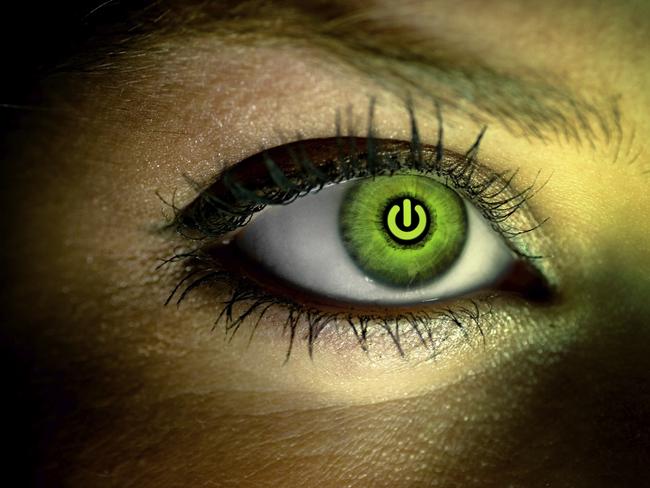
They responded by saying they hadn’t realised there was a privacy issue, saying the police had installed it because an ex-partner was being released from jail.
They solved the issue by putting up a rather ugly black barrier.
Being secretly watched and spied upon is disturbing.
As a society, we have already come to accept surveillance cameras in public places — in shopping centres, trains, our streets and clubs.
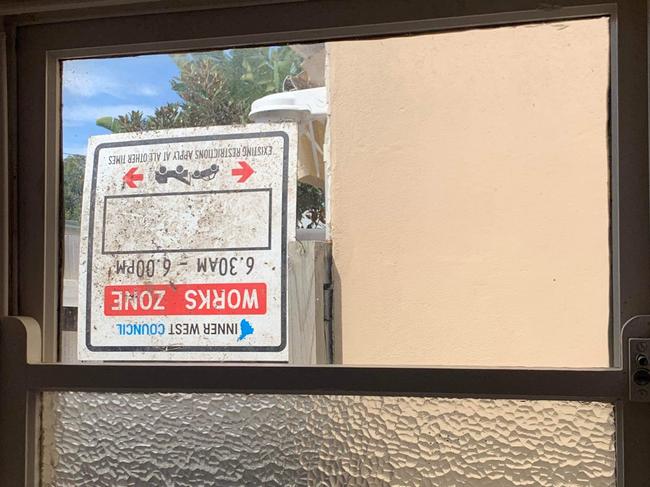
At least it feels kind of anonymous and, hopefully, deters someone who might want to mug you.
But that’s seemingly not enough for our governments and giant corporates. They’re champing at the bit to bring in facial recognition technology.
But facial recognition is a huge step beyond simply recording everyone walking past.
It’s combining the surveillance footage with intelligent computers that can pick you out.
It stops being simply anonymous and instead becomes very specifically about you.
It involves taking your biometric data without your knowledge or consent over what it could be used for.
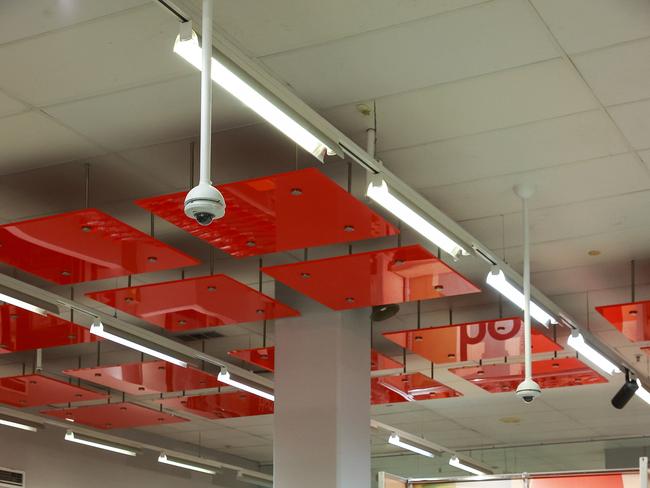
The measurements of your face are fed into a computer which turns it into a mathematical formula. That’s your unique “facial signature,” which can be matched against a database of known faces in seconds.
Just last week the Australian Hotels Association NSW and ClubsNSW announced they want it in all gambling areas of pubs and clubs to stop gambling addicts playing the pokies.
Given the appalling track record of inept governments and careless companies at managing our personal data — like Optus, Medibank and the Service NSW hack of 2020 — I have zero faith anything collected would be safe.
Back in 2016, the Federal home affairs department began building a national facial recognition database, collecting our driver’s licence photos from state governments. The bureaucrats have plans to extend the technology to airports.
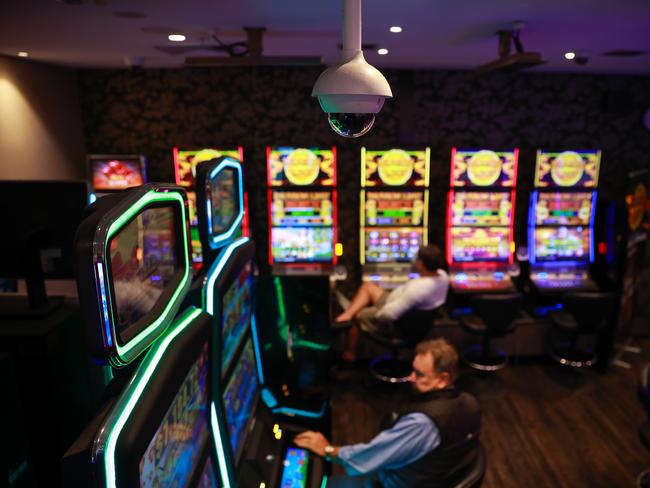
But when the Morrison government tried to bring in laws governing the technology in 2019, a parliamentary committee review found insufficient privacy protections and the plans were shelved.
A few months back, The Daily Telegraph highlighted how three retail giants — Bunnings, Kmart and the Good Guys — had already quietly snuck facial recognition into shops without us even being aware.
Hundreds of thousands of Aussies had their “face-prints” stolen by those big businesses. Even children were subjected to the intrusive harvesting of their face measurements.
Choice said it was similar to collecting your “fingerprints or DNA every time you shop”.
The Good Guys even had the hide to deny doing it, then later admitted they were trialling it. The shops justified it on security and safety grounds.
Why the secrecy? Why isn’t there a huge national debate about this?
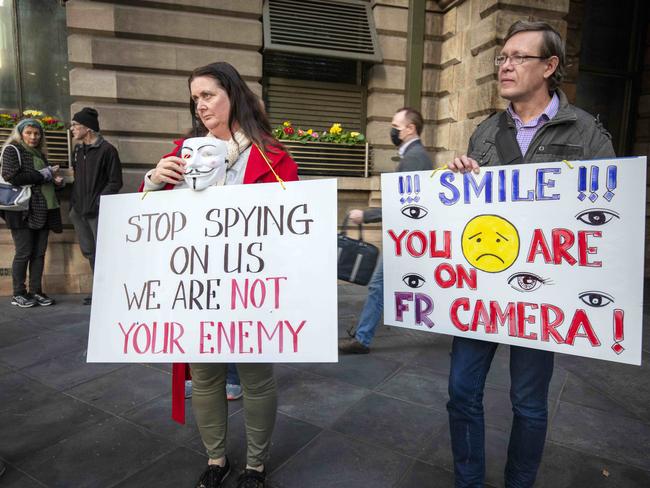
It’s another creepy form of the Australia Card that we rejected decades ago.
When I was a young university student, one of my first projects was to analyse how the media reported the Australia Card. I’ve still got the old clippings in a big scrapbook.
The Labor Government of the time, flush with the success of the new Medicare card, thought it could save billions. But even they baulked at putting people’s photographs on the cards.
At first the public supported it. But the more it was explained, the less popular it became. Prominent Australians like radio broadcaster Alan Jones and rock star Peter Garrett banded together and described it as the “greatest threat Australia has ever faced” and the public revolted against it.
The point was made that in a totalitarian system the government relies on secrecy for their regime but high surveillance and disclosure for all other groups.
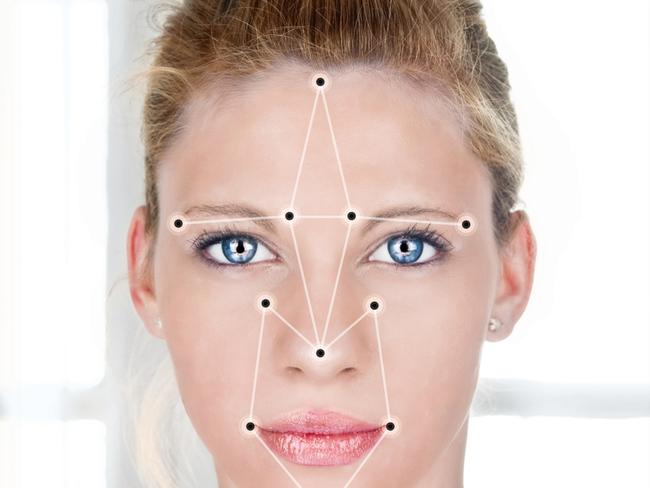
Yet in a liberal democracy, the exact reverse is true.
Just look at the appalling gulag state of China — the Communist despots are world leaders in facial recognition.
They have a vast surveillance network of millions of cameras, using them to track and imprison the Uyghurs, as well as creating social licences for citizens to control their behaviour.
In Beijing, face ID is needed to get toilet paper. Pedestrians who jaywalk are sent text messages with fines, after being detected on camera.
Why are we even contemplating this technology for our citizens?
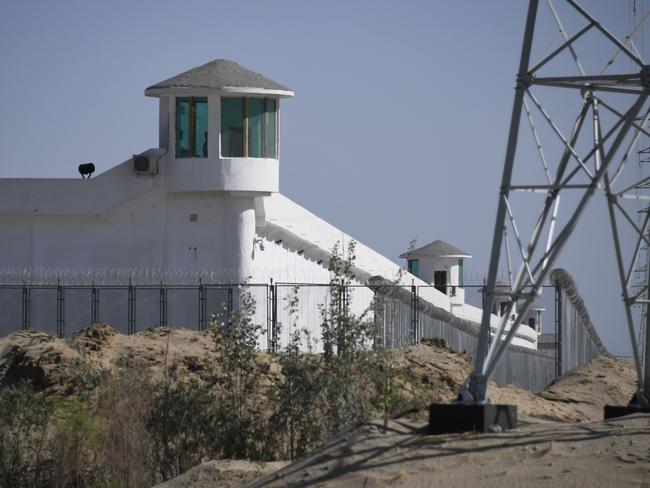
The draconian Covid-era restrictions show that if you give authorities an inch, they’ll take a mile and more.
And I’m not impressed by those tired old arguments that we’ve already lost our privacy, that we already use our faces to unlock phones and, if you’re doing nothing wrong, you’ve got nothing to worry about.
Those arguments are gaslighting. This technology scales up control of citizens by many many levels.
We all still have a fundamental right to privacy, no matter how many photos people share with friends on social media.
And you have a right to walk freely on our streets and in our cities without being stalked by Big Brother. Without self-censoring, without looking over your shoulder, wondering if you’re being watched.
Maybe we claim copyright on our own faces, as Australian futurist Steve Sammartino suggests. Just like a piece of music or a painting, so the authorities are not entitled to harvest it.
When photography first spread around the world, many primitive cultures didn’t want their image taken, fearing it would steal their souls. Maybe that’s not such an irrational belief.
By swiping our unique facial data with their CCTV cameras, governments and corporates are not just taking snapshots.
They’re robbing us of our freedoms and creating a creepy surveillance society.




